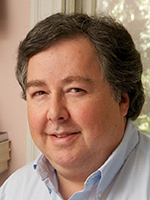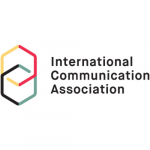Two Heroes of Public Health and Environmental Journalism visit CJC

One seemingly small story can make big impact in helping the public understand environmental complexities such as pollution and public health. That was Dan Fagin’s method in telling the tale of chemical pollution and a childhood cancer cluster in a tiny town that earned him the Pulitzer Prize for his book Toms River – and his message to CJC students during his visit to the College in February.
Fagin is a long-time environmental and science journalist who directs the Science, Health and Environmental Reporting Program at New York University. He spent two days on campus, the first in CJC’s series of Pulitzer Prize-winning journalists who will visit this year in commemoration of the prizes’ centennial celebration.
Fagin met with students in Environmental Journalism class and helped them brainstorm this semester’s project, a series on freshwater and its future in North Central Florida. He also met with faculty and administrators on trends in science journalism and communications, which include subject-matter expertise, translational science and tech journalism.
Fagin’s public lecture, “Connecting the Dots in Toms River and Beyond,” explored the role of science journalism and communication to help the public understand the link between public health and the environment. He drew a broad audience from the campus and community, who applauded when Fagin said too many journalists are assigned to cover the same stories in Washington, when their skills are needed on urgent local issues such as the Flint lead poisoning.

He pointed to Curt Guyette, who broke the Flint story, as an emerging model for in-depth local reporting. Guyette, who visited the College the following week to speak at the annual frank gathering for public-interest communications, is employed by ACLU Michigan as an investigative reporter funded by the Ford Foundation. Working with local citizens, pediatricians and a lead expert from Virginia Tech University, Guyette helped organize the testing in Flint homes that showed some contained lead levels high enough to meet the federal definition of “toxic waste.” Contrary to assurances from state and federal environmental regulators that it was safe to switch Flint’s drinking water from Detroit’s water plant to the Flint River as a cost-saving measure, the water was harmful, especially to children: The proportion of kids with above-average lead levels in their blood doubled in the 18 months after the switch.
After the disaster was made public, the city reconnected to Detroit’s water system. Guyette has been lauded as a hero from home, where he was named Michigan Journalist of the Year, to the frank audience in Gainesville, which gave him an emotional standing ovation after his talk on the Flint story.
During a Q&A in Journalism Professor Mike Foley’s reporting class, Foley asked him about the Pulitzer Prize. Because he was not working as an independent journalist like Fagin, or employed by an organization whose primary business is news, Guyette is not eligible.
“But that’s okay,” he told the students. “I got to keep kids from getting lead poisoning.”
Category: College News
Tagged: Curt Guyette Dan Fagin
Subscribe to our News Digest


